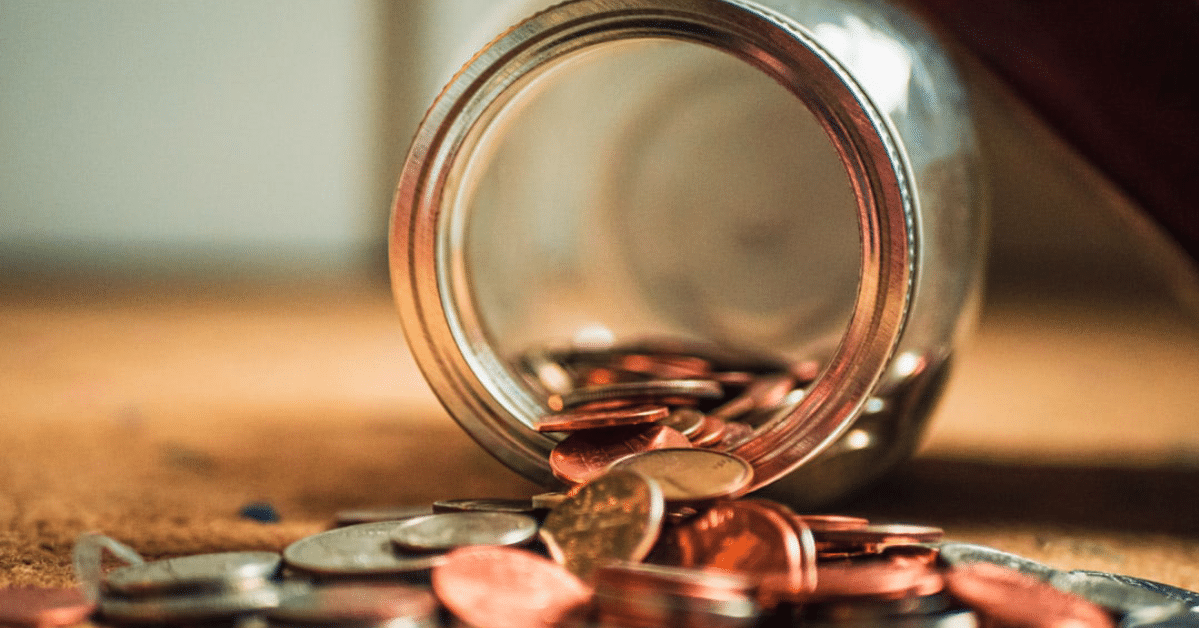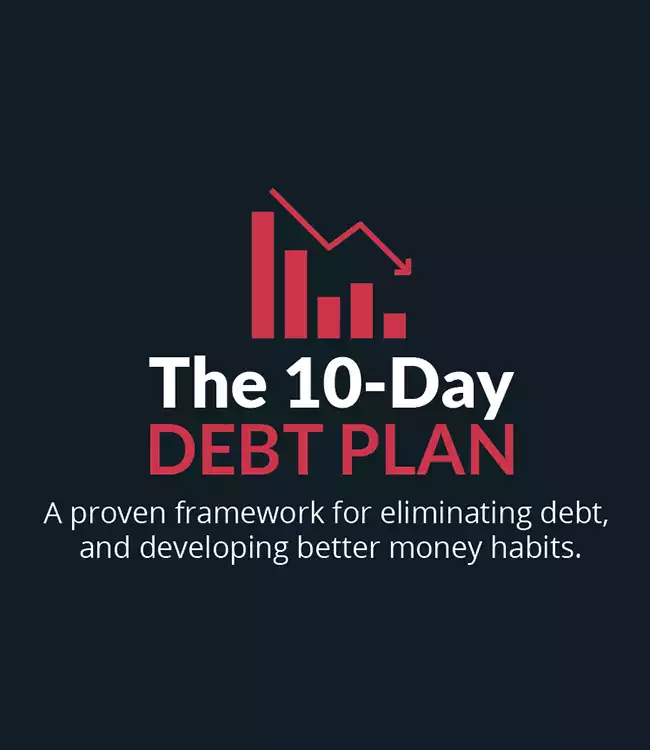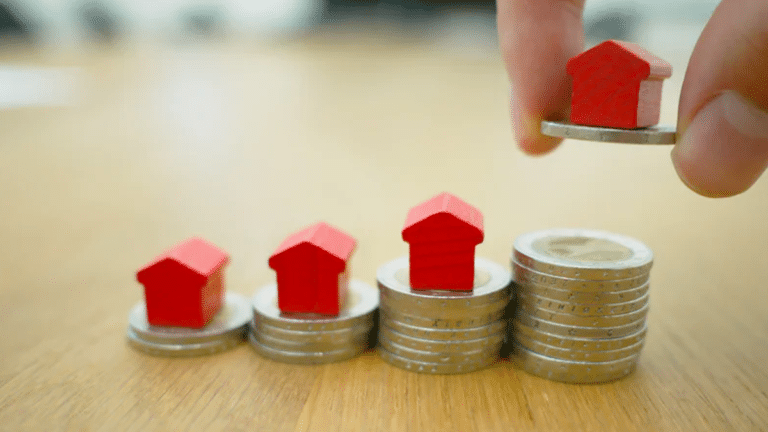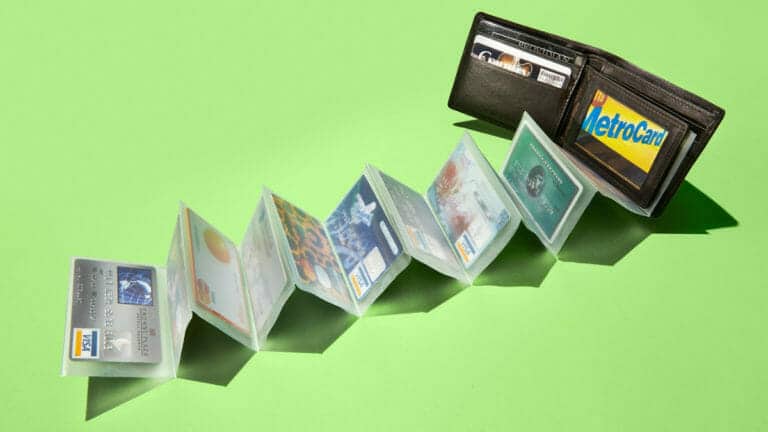Credit influences every aspect of your financial life; From renting an apartment to an employer determining whether to hire you. This detailed post outlines what it is why you need it. If you want to learn how to use credit to your advantage, you’ll love this post. Let’s get started.
What Is Credit?
Credit is the ability to borrow money today with the promise of paying it back in the future. It’s the adult version of when one of your classmates would want to borrow five bucks, and you were never really sure if they’d get around to paying you back.
People with good credit are like those kids in school who paid you back the next day. Kids like Jill.
If Jill borrowed $5.16 on Monday, she’d bring you a five-dollar bill, one dime, one nickel, and one penny on Tuesday.
People with bad credit are like Timmy. Timmy would just avoid you for the next ten years until you graduated high school.
In the school example, the kids who loan out the money are like creditors. The adult version of this would be merchants, lenders, or people who provide services.
As consumers, we want people to lend to us. Perhaps it’s to buy a house or take out a student loan. That’s why it’s vital to have good credit.
Kids have a general feeling about who in their class is likely to pay them back, but adults use a more objective method, your credit score.
Why Is Credit Important
Your credit score is a three-digit number that summarizes you as a borrower. The higher your credit score, the more trustworthy you’re considered to be.
It enables lenders to quickly do a credit check and determine if they’re dealing with a Timmy type person, or a Jill type person. Credit scores range between 300 and 850. Anything above 800 is considered excellent.
If you’re a Jill type person, they’ll happily lend you money, because they’re sure you’ll pay them back with interest. They’re less likely to give Timmy money because they can see he has a history of not paying it back.
To get your credit score, lenders will look at your credit report. Your credit report is essentially just your credit history with a little more information and consolidated in a file that’s easy to read.
The Three Credit Bureaus
Your credit report is kept by three independent credit bureaus— Experian, TransUnion, and Equifax. The Fair Isaac Corporation (FICO) developed an algorithm that puts all this information into an easy-to-understand numerical score. That’s where the term FICO score comes from.
Every lender tells the three bureaus whether or not you repay your debts. Each one independently keeps track of how many times you gave back the money versus how many times you didn’t.
All of this data is compiled into independent reports and assigned a score. Each bureau’s credit scoring system varies slightly.
Your FICO score gives creditors an idea of what kind of borrower you’ll be, but to get the entire picture, they’ll have to look at your full credit report from either Experian, TransUnion, or Equifax.

Your credit report contains the following information:
- Any loans you’ve taken out including their amounts and how much you’ve paid back.
- How many credit card accounts you have, including their borrowing limits and outstanding balances.
- Whether you missed, were late, or paid your monthly payments on time.
- Major financial setbacks such as bankruptcies, car repossessions, or mortgage foreclosures.
This free course outlines a proven framework that thousands of people have used to eliminate their debt, develop better money habits, and start building a secure financial future.
The Four Basic Types of Credit
Revolving: Most cards are revolving credit. This type is where you have a borrowing limit. You have a minimum amount you have to pay off every month, but you’re allowed to pay off the full amount. Any amount you don’t pay off will roll over to the next month.
Charge Cards: Charge cards are similar to credit cards, except you have to pay the full balance off each month. They’re pretty rare these days, but they used to be common with retailers. The trick was you could only use them at that location. So you might have a JC Penny charge card, but you couldn’t get gas with it. You just had to buy something from JC Penny.
Service Credit: This is for services provided to you, such as gas, electricity, power, gym membership, cellphone plan, etc. These are services given to you with the understanding you’ll pay for them after the fact.
Installment Credit: These are loans given to you that you agree to pay back in equal monthly installments over a set period. An example of this would be a car payment that’s $349/month for 72 months.
Why Do You Need a Good Credit Score?
So we now understand why credit exists, but why do you need yours to be good?
At some point, you’re going to want to purchase something, and your credit is going to be the determining factor in how much you pay, or whether you get to make the purchase.
When it comes time to buy a home you’ll get a lower interest rate from the bank if you have good credit. If you don’t they may not lend you the money.
When it comes time to rent an apartment, your landlord will look at your score to determine if they should give the sweet condo to you or if they should rent to someone else.
Insurance companies look at it when determining what kind of rates to give you. Employers may seek to determine whether or not they should hire you.
Credit will influence almost every financial aspect of your life.
How Do You Build a Good Score?
So you know why credit exists, you know you want yours to be good, but how do you go about building it? There are several ways you can increase your score. I know it seems like building credit is a black hole of confusion, but it’s not.
Using Credit Cards

The easiest way to build credit is by using credit cards. You can increase your score by paying off your card, on-time and in-full, every month.
Be careful though, making late payments or not paying it off will result in a lowered score. The more lines of credit you can successfully pay off, and the longer you keep your cards open, the better your score.
It’s similar to borrowing money from kids at school so that you could pay them back and earn a reputation as someone who pays their debt.
What you don’t want to do is use your credit card to buy a bunch of stuff you can’t afford. Credit card debt can feel like an avalanche, and eventually, even making the minimum payment becomes difficult. Never use your card to purchase something you otherwise can’t afford.
You can also increase your limit by asking your card company to raise it. The higher your available credit, the more trusted of a borrower you’re considered to be.
Without Using Credit Cards
You can also build it by paying off the loans you get. Paying off your student loans, car loans, and any bank loans on-time every month will raise your credit score.
You can also ask your service provider or landlord to provide your positive payment history to the credit bureaus. If you have a bank account, you can talk to your banker about getting a line of credit.
What If You Have Bad Credit?
Climbing out from under bad credit is a tough situation, but it’s doable. To get started, you’ll need to build your credit back up.
If you don’t qualify for a credit card, you can increase your creditworthiness by becoming an authorized user on someone else’s credit card. You can also be a cosigner on someone else’s loan.
Having bad credit is like having debt, you can't climb out of it overnight. Be patient with yourself and start small.
Tweet ThisDon’t buy things you can’t afford and always pay your debts on time. It will take a while to build back up your payment history, but you can do it.
Final Thoughts
Building a good score is within your reach if you plan ahead and take control. Personal finance is personal. What works for me might not be the best plan for you.
The amount of time and the amount of money you can devote to your finances will vary from person to person, but these steps will help you increase your score and take control of your finances.
The first step to building your credit score is to know where you’re currently at. For a free credit score, check out Credit Karma.



